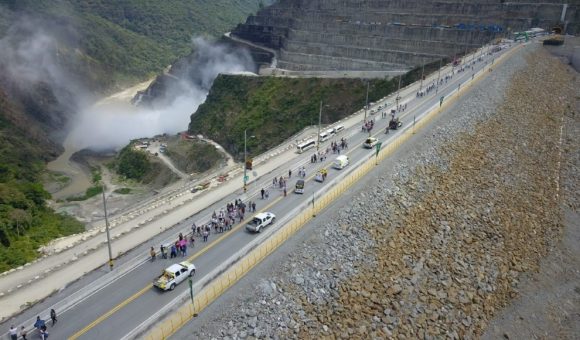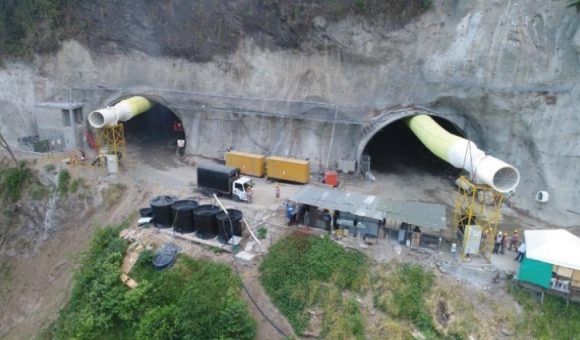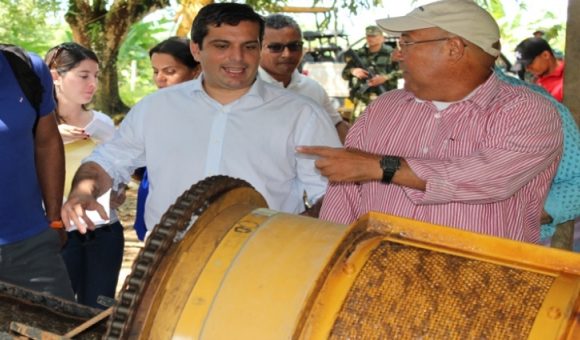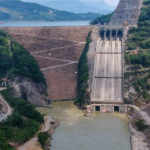Colombia’s Controller-General Probing 2 Former Medellin Mayors, 2 Former Antioquia Governors over Hidroituango Construction Errors, Financial Losses
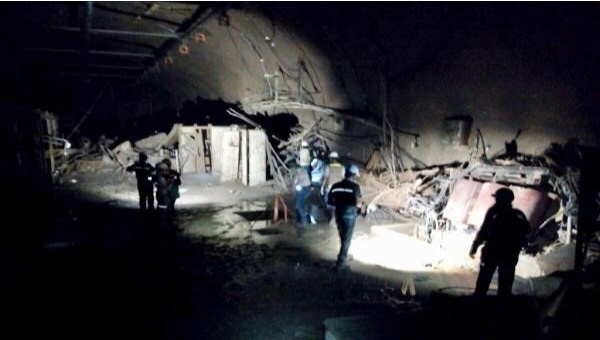
Colombia’s Controller General (Contraloria General de la Republica, CGR) Carlos Felipe Córdoba Larrarte announced November 14 that his agency has opened an investigation into two former Medellin Mayors, two former Antioquia Governors and three EPM representatives potentially responsible for construction errors and financial losses resulting from the collapse of a diversion tunnel last year at the US$5 billion “Hidroituango” hydroelectric project.
The decision to probe the former politicians, EPM officials and “Hidroituango” board members – including 29 others involved in the construction – comes on the heels of a CGR announcement in September determining that EPM could lose as much as US$1.17 billion in certain revenues and costs resulting from that tunnel collapse (see Medellin Herald September 20, 2019).
Immediately following the November 14 CGR announcement, EPM general manager Jorge Londoño de la Cuesta stated that EPM hasn’t yet been notified of the probe, but will cooperate with the investigation.
While the CGR didn’t name which politicians or officials are under investigation, the press release implicitly excludes current Medellin Mayor Federico Gutierrez and current Antioquia Governor Luis Perez.
Incoming Governor Anibal Gaviria was a Medellin Mayor during the time-frame cited in the CGR probe, as was former Medellin Mayor Alfonso Salazar.
Former Governors Luis Alfredo Ramos and Sergio Fajardo (another former Medellin Mayor) also were serving as Antioquia Governors during the time cited in the probe, as noted in a report by Colombian daily newspaper El Tiempo.
Former EPM general manager Juan Esteban Calle and current general manager Londoño de la Cuesta also would face questioning, along with former EPM and Hidroituango project board members.
The CGR announcement states that Hidroituango losses would include COP$2.97 trillion (US$860 million) in “loss or destruction of value of the project” as well as another COP$1.1 trillion (US$318 million) “due to resources no longer received by the government as a result of the non-operation of the hydroelectric plant,” which originally was supposed to have started-up at end-2018 — initially at one-quarter (600-megawatts) of its eventual 2.4-gigawatts capacity.
EPM now estimates that first power output (at 600-MW) won’t happen until end-2021, three years after the original, planned start-up – hence costing hundreds of millions of dollars in lost power sales.
The CGR report alleges that missteps in Hidroituango construction, engineering and spending decisions were “not justified, because they obeyed the need to address situations that arose as a result of serious problems in the planning and execution of the project, attributable to improvisation and the lack of follow-up and control of the related parties as presumed responsible.
“These greater unjustified investments destroyed the value of the project as it was conceived from its baseline, thus generating damage to the state’s assets [including its part-owners: the city of Medellin and the Department of Antioquia] in the form of impairment or loss.
“In turn, as a result of the non-operation of the hydroelectric plant [that is, at the initial December 2018 start-up deadline], due to the unjustified increases in the work schedule, which were due to planning problems and construction errors, damage to the state’s assets was generated in the form of impairment,” according to the CGR report.
“After completing the respective notification process of this opening order, the CGR’s Office of the Intersectorial Comptroller Delegate No. 9 of the Unit of Special Investigations against Corruption will proceed to cite the alleged perpetrators,” according to CGR.
“After this process, the Office of the Comptroller General of the Republic will proceed to make the corresponding decision” on whether to impute charges or dismiss the case.

